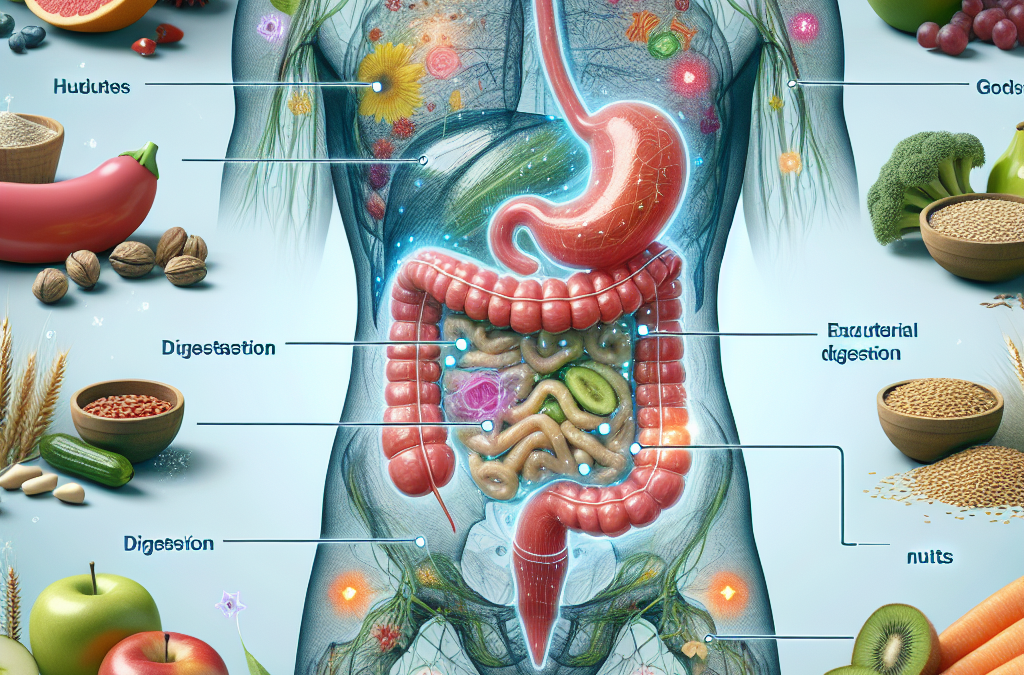Understanding Whole Foods
What Are Whole Foods?
When I first started my journey toward better health, I came across the term “whole foods.” These are basically foods that are as close to their natural state as possible. Think fruits, vegetables, whole grains, nuts, and seeds. They’re packed with nutrients and free from processed junk that can mess with our digestion.
Whole foods retain their fiber, vitamins, and minerals, which is super important. For instance, did you know that an apple’s skin is a powerhouse of fiber? When you opt for whole foods, you’re not just eating to fill your belly – you’re nourishing your body.
Plus, the vibrant colors of whole foods indicate a variety of nutrients. The more colorful your plate, the better! So, if you want to jazz up your meals and support your digestive health, incorporating more whole foods is a creative way to do it.
Fiber: A Key Player
Importance of Dietary Fiber
Now, let’s talk fiber. It’s like the unsung hero in the world of digestive health. Whole foods, loaded with fiber, promote healthy digestion by keeping things moving through your intestines. No one enjoys that bloated, heavy feeling, right?
There are two types of fiber: soluble and insoluble. Soluble fiber, found in oats and apples, can help lower cholesterol and regulate blood sugar. Meanwhile, insoluble fiber, found in whole grains and vegetables, adds bulk to your stools. It’s all about balance for a happy gut!
Ever tried a smoothie with spinach, flaxseeds, and a banana? That combo is not only delicious but a fiber powerhouse that supports digestive health. Seriously, incorporating these fiber-rich foods into your diet can work wonders.
Gut-Friendly Nutrients
Vitamins and Minerals
Whole foods are brimming with vitamins and minerals that support not just digestion but overall well-being. For instance, vitamin A promotes a healthy gut lining. And beyond that, nutrients like magnesium from leafy greens help relax your digestive muscles.
When I switched to focusing on whole foods, I noticed a difference in my energy levels, too! Foods filled with antioxidants, like berries, can reduce inflammation and improve gut health. It’s pretty amazing how colorful foods can heal!
You might also appreciate how whole foods assist in keeping a balanced gut microbiome. Foods like fermented vegetables, yogurt, and even blueberries are excellent for feeding the good bacteria in your gut. Just think of it as feeding your little gut buddies!
The Power of Hydration
Fluid Intake and Digestion
Something we often overlook is how hydration plays a crucial role in digestion. Drinking enough water while enjoying whole foods helps break them down and absorb nutrients more efficiently. I can’t stress enough how vital this is!
Get an Amazing Discount on the Best Certified Organic Whole Food Supplement!
Water also helps to soften stool, reducing the chances of constipation. I’ve had days where I barely drank water, and oh, the discomfort was real. So, pairing your meals with adequate hydration can make all the difference.
Another fun tip? Try infusing your water with slices of fruits like lemon or cucumber! It not only boosts flavor but makes hydration super enjoyable. Incorporating this habit into your daily routine has improved my digestion tremendously.
Practical Ways to Incorporate Whole Foods
Cooking with Whole Foods
So, how do you get started with whole foods? First, ditch the processed goodies in your pantry. Replace them with whole grains, fresh fruits, and vegetables. I won’t lie; the first shopping trip can feel overwhelming, but it’s a rewarding adventure.
You can have fun experimenting in the kitchen! Try simple recipes that utilize whole-food ingredients. Ever made a quinoa salad with cherry tomatoes, cucumbers, and a splash of lemon? It’s so easy and satisfying!
Lastly, keep things interesting. Explore different cuisines that focus on whole foods, like Mediterranean or Asian dishes. It’s a delightful way to enrich your meals while supporting your digestive health!
Frequently Asked Questions
1. What are whole foods?
Whole foods are natural foods that are unprocessed or minimally processed, keeping as many of their nutrients intact as possible. This includes fruits, vegetables, whole grains, nuts, and seeds.
2. How does fiber support digestion?
Fiber aids in digestion by adding bulk to stools and promoting regular bowel movements. It can prevent constipation and support a healthy gut microbiome.
3. Are there specific whole foods that are better for digestive health?
Yes! Foods like bananas, oats, beans, and yogurt are particularly beneficial. They provide fiber, probiotics, and essential nutrients that improve gut health.
4. How much water should I drink for good digestion?
While it varies per person, aiming for at least 8 cups a day is a good start. Listening to your body and adjusting your intake based on activity level and climate is key.
5. Can whole foods help with digestive issues?
Absolutely! Incorporating fiber-rich whole foods can alleviate symptoms like bloating and constipation. Foods with probiotics can further enhance gut health. Always consult with a healthcare provider for persistent issues.





